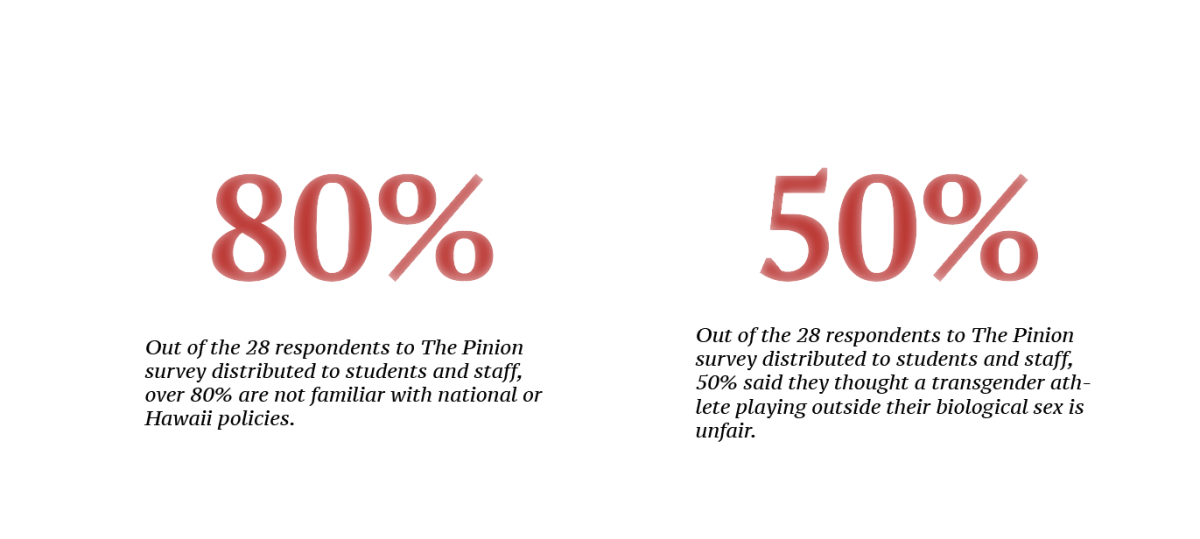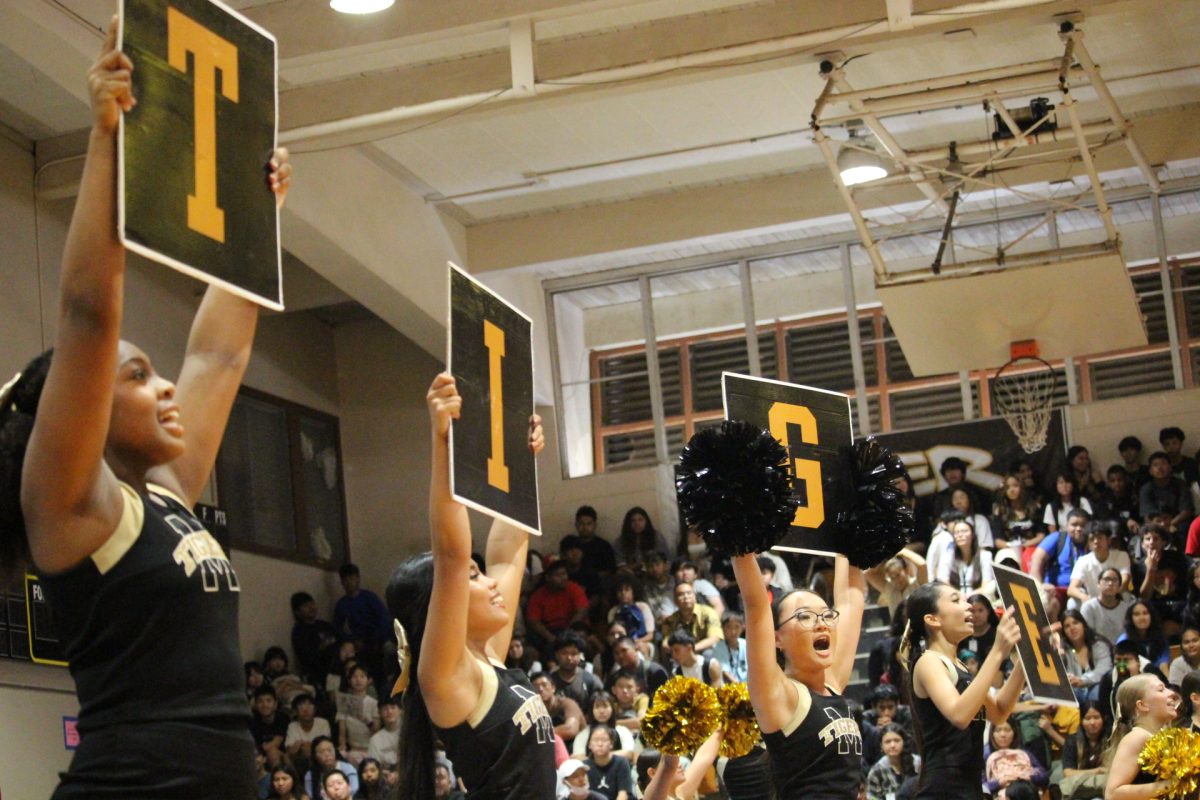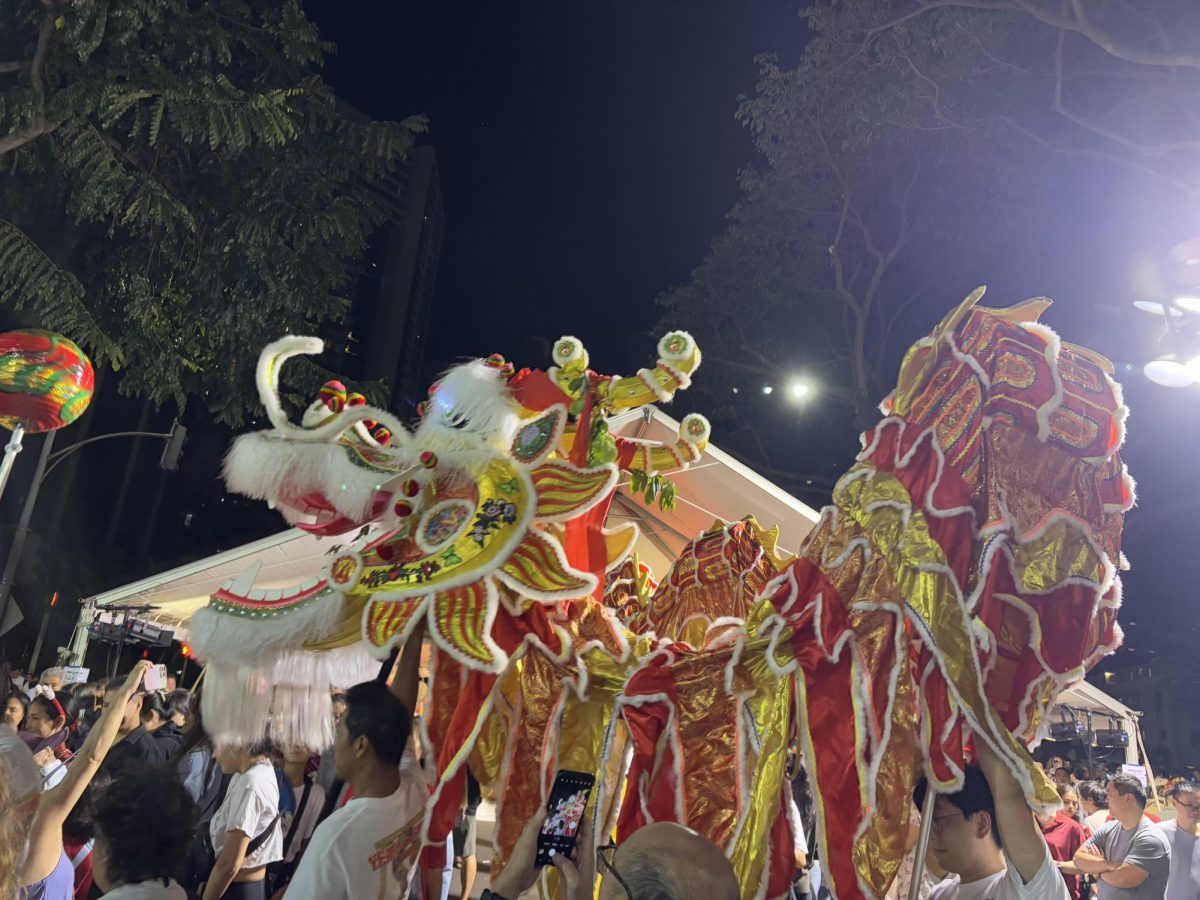As the LGBTQ+ community has garnered increased awareness, transgender athletes have become a more common occurrence in all levels of sports. A controversy in this summer’s Olympics posed a plethora of questions concerning the guidelines, ethics, and fairness of having transgender athletes compete in professional and scholastic sports. The Olympics controversy was based on ignorance and misinformation, which remains prevalent within these sports, as well as among the people.
The guidelines for trans-athletes are based on Title IX. Title IX is a landmark federal civil rights law enacted as part of the Education Amendments in 1972. It prohibits discrimination on the basis of sex in education programs and activities. While not only related to sports, Title IX has ensured that women and girls have access to the same academic and athletic opportunities. Title IX does allow schools to have separate teams for boys and girls, and requires schools to accommodate students’ athletic abilities and interests.
Title IX is in close connection to Hawai’i, playing a vital role in civil rights legislation with Congresswoman Patsy Matsu Mink being a major part of developing and defending Title IX. She was the first Asian-American woman to earn a spot in the House of Representatives.
McKinley High School social studies teacher and alumna Rajani Dhakhwa Morita was an athlete during her time in high school from 1998-2000.
“Hawaii is home to one of the main women responsible for Title IX, I owe a lot to Title IX for enabling me to participate in sports.” Dhakhwa Morita said. “Patsy Mink was a huge part of that opportunity.”
Title IX has become a staple in arguments for those that are both for and against transgender people in sports.The argument against is specifically aimed at transgender women, as it is often seen that this bias is coming from a place of wanting to ‘protect biological women and girls in sports.’
Journalist Jaclynn Joyce wrote an article about two transgender athletes at Keaau High School. According to her article, Cynthia Monteleone, an American track athlete, is on the frontlines to do what she believes is saving women’s sports in Hawaii.
Monteleone has had an active civil rights complaint against the Department of Education since 2020 before the recent changes to Title IX were put in place, which is currently being investigated. The complaint argues that the DOE oversees the Hawaii High School Athletic Association and is violating Title IX by discriminating against females.
Although it is true that Title IX was originally intended to level the playing field for women in both sports and education, it now has expanded the rights of the LGBTQ+ community. In April, President Joe Biden changed the definition of sex in Title IX to include gender identity and sexual orientation. This rule went into effect on August 1.
Biden released a statement saying that he is committed to protecting the progress of women, adding that he was “working to achieve full equality, inclusion, and dignity for women and girls, LGBTQ+ Americans, all students, all Americans.”
However, over half of the states have not accepted this ruling. The Biden Administration’s rewrite of Title IX has garnered at least eight lawsuits. They argue that the term “gender identity” is not specific enough to be included into regulation, and several of the lawsuits claim that this opens the door to inequality in school athletics for girls.Hawaii is currently following Biden’s new rule, and has not challenged the changes to Title IX.
ESPN released an article regarding trans-athlete laws that stated, “The HHSAA has no discernible policy, and the state has no law. Bills that would prohibit trans girls from participating in girl’s and women’s sports have been filed, but none have passed.”
However, both Principal Ron Okamura and Athletics Director Bob Morikuni say that the HHSAA policy allows male and female athletes to self-identify into male and/or female competitions.
The Oahu Interscholastic Association (OIA) allows transgender athletes to participate.
Ky Wong, the swim team coach for MHS supports the OIA’s rule on transgender athletes.
“I accept the fact that everyone has the privilege to play in sports, and I feel as if we need to respect what we have in advance and understand there are limitations, but we need to be more open and available,” Wong said.
Wong shared a similar view to that of ESPN.
“These guidelines are very blurred right now, and no one’s created nice, clean-cut rules for a lot of sports (high school),” Wong said.
Kim Coco Iwamoto, the first transgender woman to be a member of the House of Representatives representing District 25, has offered some insight as to why that is.
“There are many reasons why I think we haven’t nailed down laws pertaining to transgender people specifically in sports, number one, we are still learning so much about the human body and brain,” Iwamoto said.
“The bottom line is we are getting more and more science and knowledge, and the science on transgender people is still being understood.”
Iwamoto sees these organizations citing other people’s guidelines as a way of moving themselves out of the center of attacks from people who don’t agree with those guidelines.
“It points the finger, it softens the controversy,” Iwamoto said.
In the spring of 2023, Hawai’i legislators did try to pin down a law and specific defintion with House Bill N.O 1740. This bill mandates a sports system where there is a biological designation for both male and female sports teams. Biological males on a boys team and biological females on a girls team. The bill also includes a team for co-ed or mixed athletes, alongside a list of requirements and guidelines for each team. The bill stated that the legislature supported the ‘dire need to promote sex equality by ensuring that female athletes have a designated space to compete against other females.’ This bill did not get a hearing.
Iwamoto embraces the idea of flexibility.
“I feel that we are going to lose out on giving lots of people opportunities if we are that rigid, that binary and exclusive,” Iwamoto said.
Iwamoto views this proposal as more of a hindrance to the advancement of sports.
“Maybe someday, they are going to start dividing people based on actual fitness and talent, it feels like we are going backwards enforcing a binary when we are potentially looking at evaluating athleticism with a whole different matrix of perspectives.”
Iwamoto believes that it is important for these bills to be heard rather than dismissed immediately and having that person’s voice silenced.
“The representational democracy and reforms I am trying to work for is that all bills, even if they may be offensive to some, to me, etc, get discussed and voted on,” Iwamoto said.
However, Principal Okamura maintains a different perspective on the effectiveness of that alternative.
“The issue is kind of a moving target, maybe down the line, they are going to have to start looking at creating a separate category for transgender athletes, which is what I am looking at.” he said.
“Anatomically, as a boy, your muscle mass and the structure of your body is very different from a girl’s, and to me, that is a bit of an advantage.”
Swim coach Wong believes the idea of having separate categories comes with its own challenges, especially concerning the monetary aspects of the alternative, and the guidelines for sports.
“It would be very complicated, first of all,” Wong said.
“We would need to create different standards for a biological male identifying as a female, different standards for a biological female identifying as a male. At that level, you’d want a completely separate league, and we simply do not have the financial/logistical backing to do so.”
Wong epressed his concern for the current binary system we already have on sports. stating that he would rather pour money and effort into that system right now.
The common viewpoint on transgender athletes, specifically transgender girls and women, of physiological characteristics providing an unfair advantage over biological athletes has been disputed by numerous doctors, calling this notion a myth.
“A person’s genetic make-up and internal and external reproductive anatomy are not useful indicators of athletic performance,” according to Dr. Joshua D. Safer, an MD specializing in transgender health.
“A person’s sex is made up of multiple biological characteristics and they may not all align as typically male or female in a given person,” Safer said.
He goes on to say that people that are trans can have hormone levels outside of the range considered typical of a cis person for their assigned sex.
Rylee R. Warden, class of 2027 and a swim team participant at McKinley High School also does not support this idea.
“The top biological athletes in sports also have a lot of advantages they were born with,” Warden said.
“Advantages are natural in sports, that is just how life is.”
This misconception has inspired an outcry and almost a paranoia over multiple cisgender athletes, who many falsely claimed to be transgender during the Paris Olympics. Imane Khelif is one example of this. Khelif’s participation in Olympic boxing was defended by the International Olympic Committee, and it was proven that she is a biological woman.
Jerry Brewer, a sports columnist, commented on this incident according to the Washington Post.
“I think we think that sports is a place for everyone,” Brewer said.
“But I think there’s a myth of inclusion about sports, and I think that we have a long history of exclusion that brave people have had to fight through to make it more inclusive, to make us more diverse.”
Brewer called it a “panic over trans inclusion in sports” in his Grievance Games series for the post.
Social studies teacher and former high school athlete Dhakhwa Morita said she has had to accommodate her understanding of gender to see it as fluid, as a spectrum because she grew up when gender was considered a binary.
“There is a lot of ignorance surrounding the transgender community and I think there’s a lot more education that needs to happen, for myself included,” Dhakhwa said.











